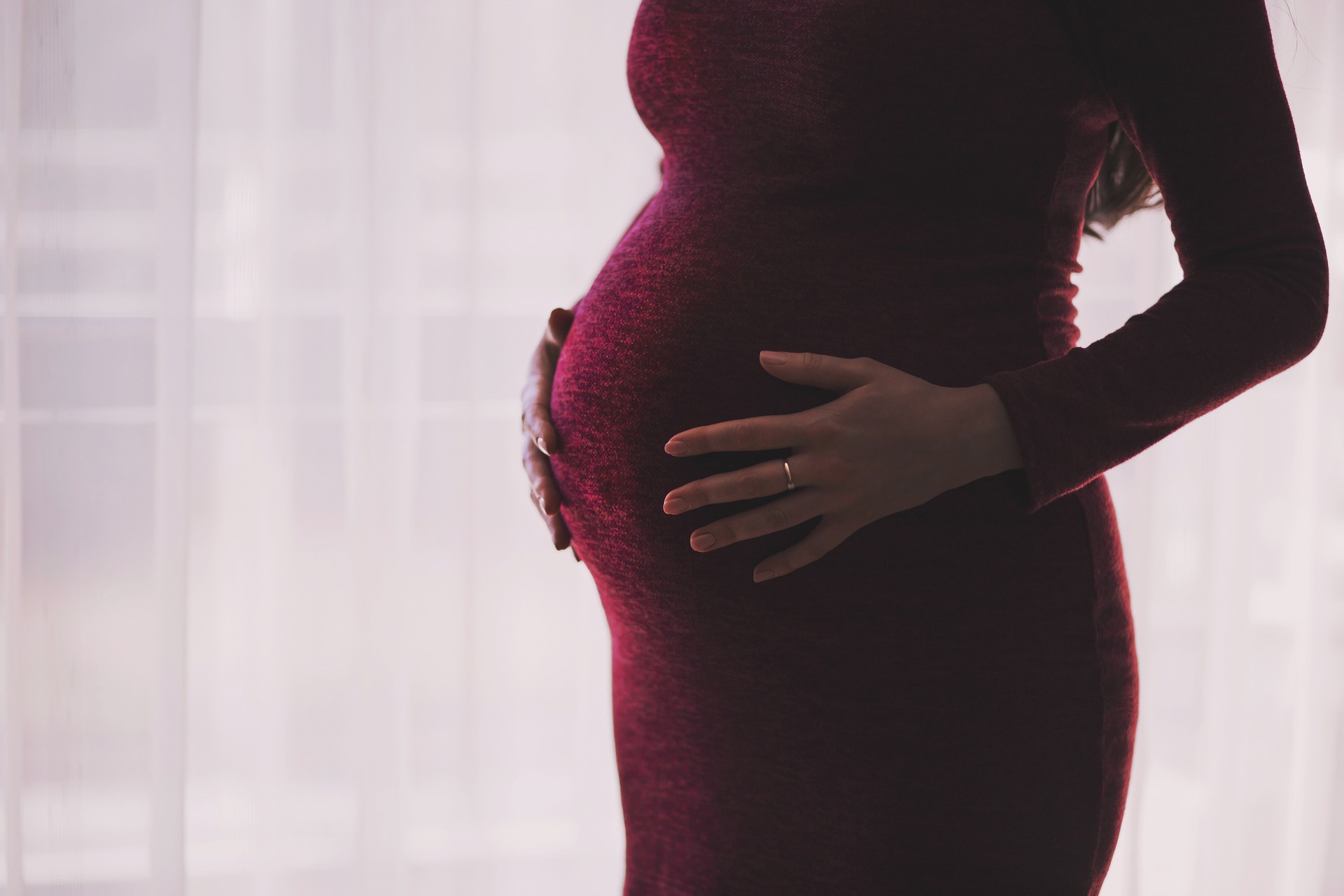Share

HOW LONG WILL IT TAKE TO SETTLE YOUR HORMONES DOWN AFTER GIVING BIRTH
By Victoria Healthcare 09 July 2019

How childbirth affects hormones
A woman’s body produce many different hormones during pregnancy to maintain it and then to help with childbirth. The effects of your post pregnancy hormones may impact your day-to-day activities
Relaxin, for example, is a hormone that is secreted by woman's ovaries, placenta and even uterine lining during whole pregnancy. During first and second semesters it inhibits muscle contractions preventing premature childbirth and at the end of pregnancy promotes rupture of the membranes surrounding the fetus and opening and softening of the cervix and vagina and relaxing of ligaments of the pelvis to aid the process of childbirth
Relaxin loosens the muscles and ligaments in the body, so pregnant women may be more prone to spraining or overstretching muscles during physical activity and their joints may be in danger. Even after delivery, relaxin is still active so it may take up to five months before you feel more stable in your body
Prolactin — the hormone which stimulates milk production in your body—remains in your body from pregnancy and as long as you breastfeed. Besides it may influence your behavior, metabolism, immune system and fluids regulation which explains your possible mood swings and water retention (edema) after childbirth
Oxytocin is another hormone that plays an important role in labor and breastfeeding. During labor it stimulates uterine muscle contraction and while breastfeeding it promotes the movement of milk into the breast. Latest researches show that oxytocin is very important in social behavior. It is responsible for sexual arousal, recognition, trust, anxiety. That is why it is also called 'love hormone'. Besides oxytocin is known to trigger mother–infant bonding
Though all women produce these hormones during and after pregnancy and delivery, not all women will share the same emotional experiences.
Dangers of estrogen dominance
Two of the biggest “players” in the pregnancy and childbirth hormone world are estrogen and progesterone. In fact, for women who are struggling to get pregnant, their doctor may prescribe estrogen and progesterone supplements to help facilitate pregnancy. Estrogen and progesterone levels during pregnancy both support the growing fetus and a woman’s changing body
Estrogen and progesterone are both produced in the ovaries (corpus luteum), and placenta during pregnancy. Progesterone levels rise significantly in the beginning of pregnancy. Progesterone prepares endometrium and its vessels to 'feed' the growing fetus, it also prohibits uterine muscle contractions and prevents preterm childbirth. Estrogen levels increase during pregnancy and are highest before labor. Scientists now think that labour begins when estrogen becomes the dominant hormone
Almost immediately after delivery of the placenta progesterone levels return to what they were pre-pregnancy. Estrogen levels after pregnancy remain at the same high level, resulting in what is called estrogen dominance. It’s totally normal for you to feel moody and emotional from this hormonal roller coaster. You may even find yourself crying, seemingly for no reason. As you start to settle into your new routines and begin bonding with your baby, the crying outbursts will usually settle down in a few weeks.
Estrogen dominance can cause hypothyroidism
Post-partum, there can be two types of thyroid dysfunction: postpartum thyroiditis characterized by transient hyperthyroidism or transient hyperthyroidism followed by transient or rarely permanent hypothyroidism
Low thyroid function can cause a number of physical effects
- Cold intolerance
- Weight gain (decreased appetite)
- Hypoactivity
- Fatigue
- Constipation
- Proximal muscle weakness
- Myxedema (facial /periorbital swelling)
- Dry cool skin
- Brittle hair
- Bradycardia
- Dyspnea on exertion
Remember, postpartum estrogen dominance doesn’t necessarily mean a higher amount of estrogen is in your system—it’s that the level of estrogen is high relative to the drop in progesterone you experienced following.

Estrogen dominance causes adrenal fatigue
Estrogen dominance has also been connected to adrenal fatigue. Adrenal glands produce hormones that help regulate body functions like controlling blood sugar and blood pressure. Adrenal glands have 2 zones called cortex and medulla
Cortex produces aldosterone (controls sodium levels), cortisol (controls sugar levels), sex hormones (e.g., androgens). Medulla produces catecholamines (epinephrine – 'fear' 'fight or flight' hormone, and norepinephrine ' anger' hormone
Estrogen dominance and adrenal fatigue may be interlinked and have many of the same symptoms: fatigue, weight gain and irritability. If your doctor believes that you are suffering from adrenal fatigue as a result of estrogen dominance, they may prescribe you with right medication
What are the symptoms of hormonal imbalance
For many women, postpartum hormones can leave them feeling down, and not like themselves. On top of feeling the baby blues, there are other symptoms you might notice that could signal a hormone imbalance. These symptoms can include
- Weight gain
- Fatigue
- Headaches
- Poor sleep
Hormonal imbalance can also impact your mood, and you may experience feelings of depression and anxiety.
Because the physical and emotional effects of postnatal hormones can be experienced soon after childbirth, many women want to know how long they can expect to experience symptoms of hormonal imbalance. Every woman’s postpartum hormones timeline will look a little bit different, but there is lots you can try to figure out how to balance hormones level after pregnancy
Postpartum hormonal imbalance treatment
If you are feeling the baby blues, don’t worry! There are several different treatment options available to you to help rebalance your postnatal hormones. For symptoms such as irritability, fatigue, mood swings and stress, you may find relief simply by asking your friends and family members for help with the baby or chores. Even something as small as getting some help with cooking a meal and tidying up can free up more time for you to rest and heal your body. If you need some alone time, ask your partner or a sitter to care for the baby while you take a nice bath or go for a walk in the open air. Light exercise can also help to balance your hormones and reduce stress. If you enjoy spending the company of loved ones, make time for date night or a to go the park with your friends.
You doctor or healthcare provider may also recommend herbal or hormonal supplements to help treat hormonal imbalance.
Improving adrenal function can also help alleviate some of the symptoms of hormone imbalance. As well as getting enough rest and proper nutrition.
How long will it take for my hormones to settle down
The question almost every new mom asks herself is “when will I feel normal again?” or “when will I feel like myself again?” The truth is, every woman is different. Typically, symptoms related to hormone imbalance should only be prevalent for a few weeks after delivery usually about 6 to 8 weeks. Symptoms related to hormones while breastfeeding will remain in the body for as long as a woman breastfeeds. However, you may find that you are able to mitigate the effects of hormone imbalance using some of the treatment options mentioned above, even while breastfeeding.
Remember, feeling the baby blues is totally natural after childbirth. However, it’s important to be aware of other serious postpartum symptoms. Also, if you feel like your hormonal symptoms are so severe that they prevent you from enjoying time with your baby, or they are not improving within a few weeks of delivery, talk to your doctor about other treatment options.


